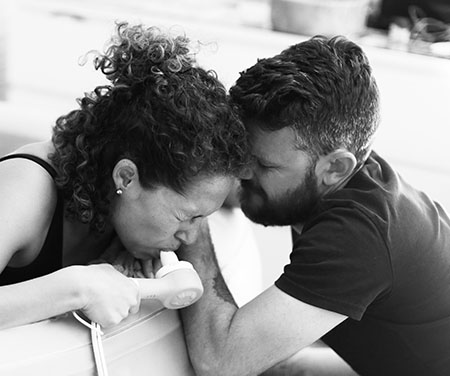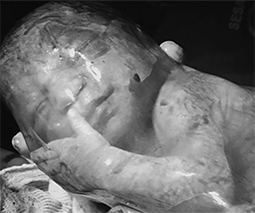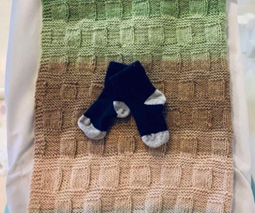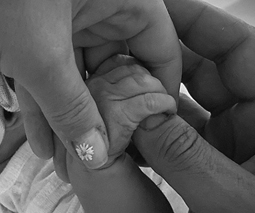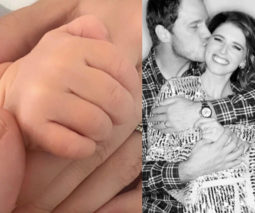6 ways to deal with visitors after the birth of your baby
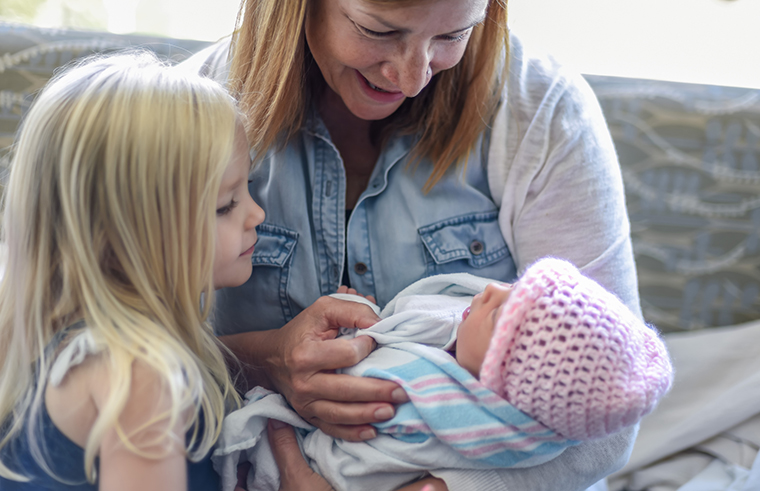
There’s no visitor-magnet quite like the lure of a newborn baby. And if you’re pregnant right now, it’s time to think about how you’re going to handle the influx of baby-hungry visitors who want to congratulate you, get their newborn fix and hear all the details about the birth.
Now this is all well and good if you’re the type of person who likes having company over and is looking forward to chatting about the birth while your baby is passed round by other people.
But, not all of us are like this. In fact, many new families prefer to shut themselves away from the world in the days following the birth of their baby, so they can get to know each other and get used to their new responsibility.

However you feel about people coming to see you and your baby, it’s worthwhile talking with your partner about how you want visits to go and setting any necessary boundaries early on.
Here are some things to consider:
1. Decide on your rules
Discuss with your partner how you feel about visitors meeting and holding your baby. Having a baby can be pretty overwhelming, and if you’re like most new parents, taking care of your newborn’s fragile immune system is a top priority, which means that snotty toddlers and anyone with a cold is to keep their distance from your new baby. Have you thought about who you’d like to cuddle your baby, and how long for? What about visit length?
2. Hospital vs. home
Some visitors might be super keen to come congratulate you while you’re still in hospital, but it’s up to you to tell them if you’d prefer to wait until you’re home. Lots of parents want to take the time to settle in with their baby and get breastfeeding going before they let people visit, and if this sounds like you, put it out there. You’re the parents, and you’re in charge.
3. Have each other’s back
Discuss with your partner how you want things to go during visits and know how to support each other with any tricky situations if they arise. It’s not always easy to be assertive or call the shots when you have well-meaning friends and family over. For example, if you’d prefer older kids not to cuddle your baby, the two of you can back each other up on this. If a visit has gone on long enough, you can give your partner the signal and they can start wrapping things up for you.
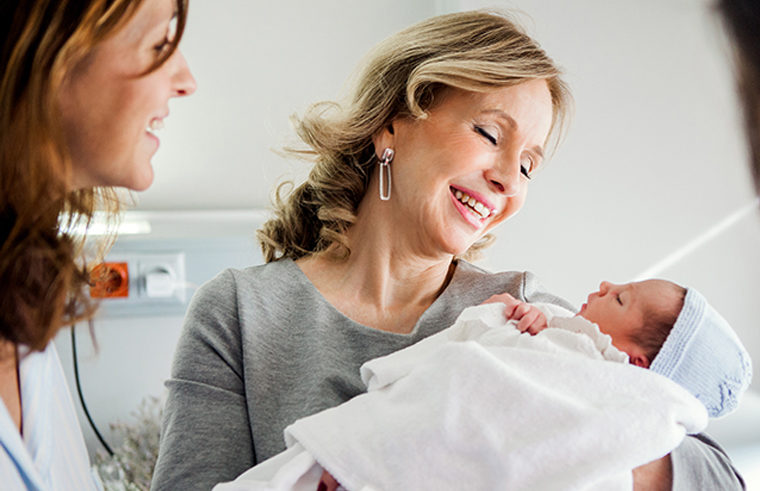
4. Just say YES!
Most visitors will tell you they want to help you with your new baby, and this is the time to put any pride or ego aside and just say ‘yes’ to offers of help. Even better than that, tell them exactly how they can help you – people don’t always know what you need, so being clear with them will give them some guidance. So go ahead and tell them you’d love some home-cooked food, a cup of coffee or some help putting the washing out. If it means hanging around your gorgeous baby longer, these guys will be all over it.
5. Don’t play host
Don’t fall into the hostess trap by letting someone else hold your baby while you get up and make everyone tea. This is your time to rest and be looked after so keep your bottom firmly planted in your seat and ask someone else to put the kettle on. This is also worth remembering if you have people coming to stay with you when your baby arrives. Make sure they are there to help you and not just to enjoy cuddles with your baby while you get on with running the household.
6. You’re not hysterical
If you want to ensure that people who enter your house have clean hands, are germ-free and vaccinated appropriately, then go ahead and say it. Present them with a pump of hand sanitiser as they come in and don’t let anyone make you feel hysterical for worrying about germs. It’s your job to take care of your newborn whose immune system is still building, and you’ll be the one dealing with your baby’s first cold if someone passes something on. Trust me, dealing with an affronted family member is way easier than dealing with your baby’s first illness.
